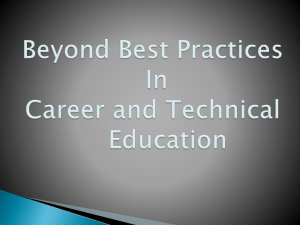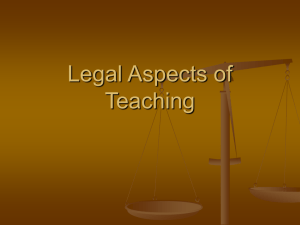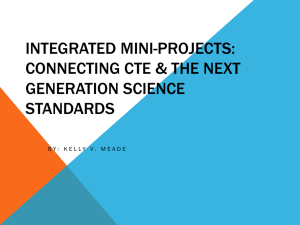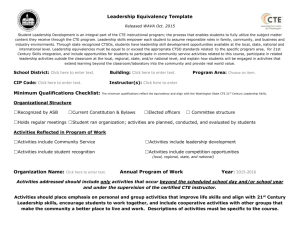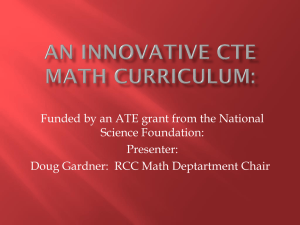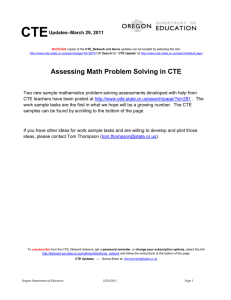ABSTRACT DISSERTATION STUDENT: DEGREE:
advertisement
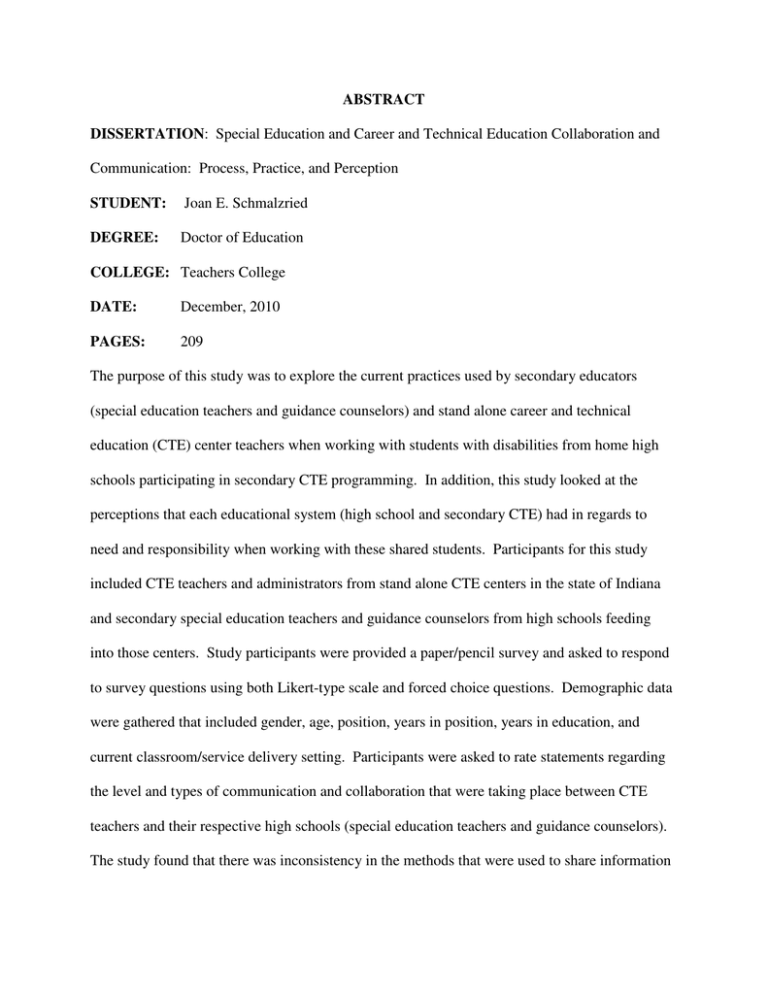
ABSTRACT DISSERTATION: Special Education and Career and Technical Education Collaboration and Communication: Process, Practice, and Perception STUDENT: Joan E. Schmalzried DEGREE: Doctor of Education COLLEGE: Teachers College DATE: December, 2010 PAGES: 209 The purpose of this study was to explore the current practices used by secondary educators (special education teachers and guidance counselors) and stand alone career and technical education (CTE) center teachers when working with students with disabilities from home high schools participating in secondary CTE programming. In addition, this study looked at the perceptions that each educational system (high school and secondary CTE) had in regards to need and responsibility when working with these shared students. Participants for this study included CTE teachers and administrators from stand alone CTE centers in the state of Indiana and secondary special education teachers and guidance counselors from high schools feeding into those centers. Study participants were provided a paper/pencil survey and asked to respond to survey questions using both Likert-type scale and forced choice questions. Demographic data were gathered that included gender, age, position, years in position, years in education, and current classroom/service delivery setting. Participants were asked to rate statements regarding the level and types of communication and collaboration that were taking place between CTE teachers and their respective high schools (special education teachers and guidance counselors). The study found that there was inconsistency in the methods that were used to share information about students with disabilities and who was responsible for providing that information. A relatively high percentage of respondents did not have any knowledge about how information was shared. The study also found that many respondents (CTE and secondary educators) did not feel regular communication took place between the two systems in regards to students with disabilities. Overall, this study found that the responses provided by CTE and secondary education (special education teachers and guidance counselors) were varied based upon respondents personal involvement or responsibility. Recommendations are made for both local and state follow-up to investigate how CTE and special education are communicating and collaborating on behalf of students with disabilities. Further research is needed in order to establish and implement more consistent practice and process related to communication and collaboration between CTE and high school personnel (special education). This study was exploratory, designed with a targeted sample (n = 131) that provides important results and useful insight that can be instructive for further conversation and research.
